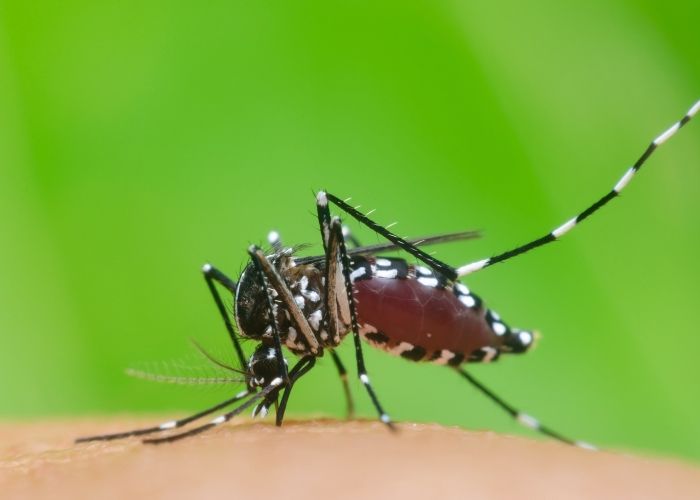ANDALUCIA – Spain wants to create a plan to prevent people from dying again this summer after being infected with the West Nile virus. Last year, eight people from Andalucia did not survive the mosquito-borne West Nile fever.
In most cases, mild, flu-like symptoms develop after infection with the West Nile virus. But in exceptional cases these can become severe and lead to paralysis, permanent nervous disorders or even death. Although this virus mainly resides in countries with a warm climate, in October last year someone was also infected with the West Nile virus for the first time in the Netherlands.
Mosquito season
In Andalucia, the mosquito season is just around the corner when 40,000 hectares of rice fields are soon flooded and the temperature will rise. Therefore, the Andalucian sub-government wants to monitor the presence of the virus immediately at the start of this season. Why there was such a large virus outbreak in Spain last year, experts have not yet been able to ascertain.
Early control of mosquito larvae
At the end of this month, a large-scale check on horses in Andalucia will begin. This will function as a barometer for the presence of the virus. West Nile fever is transmitted to horses and humans via mosquitoes that have received the virus from birds. From May, the entire prevention plan will be put into effect. Toxic bacteria, among other things, will be used to combat mosquito larvae. Furthermore, in the areas of the rice fields, the use of mosquito nets and anti-mosquito spray is recommended and the wearing of long sleeves and long trousers.
Scientists will perform PCR tests on female mosquitoes in two mosquito species found in Andalucia to determine the viral load. Monitoring the presence of the West Nile virus in insects is an effective prevention method because the virus is not found in humans until months later. Conditions this year are the same as last year, as it has rained heavily now and there has been little human activity due to the pandemic. Now only a rise in temperature has to cause an explosive increase in the mosquito population.
Exceptional West Nile virus outbreak
Last year’s outbreak was the largest in Spanish history. Normally 1 in 1000 mosquitoes is infected with this virus. However, last year this was the case with 1 in 25 mosquitoes. Between 6 August and 30 November, 77 human infections were recorded. Of this number, 57 in the province of Seville, 14 in Cádiz and 6 in Badajoz. Of those who developed West Nile fever 95% had to be hospitalised. Additionally, last year, more than 130 horses contracted West Nile fever caused by the virus.


